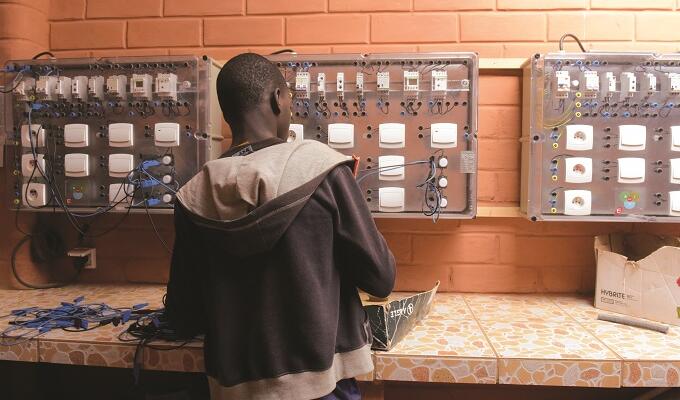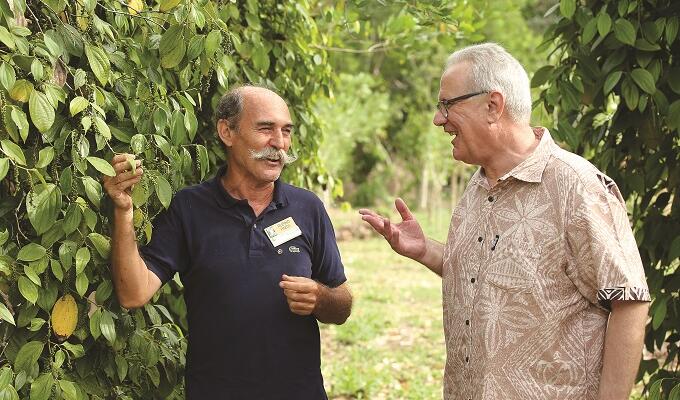

No country is an island (en)
At a time of globalization and rapidly changing economies, the European Union (EU) can only be as strong as its partners, which is why well-founded trade relationships are of crucial importance. However, if we want to continue to alleviate poverty, eliminate hunger, improve working conditions and boost economic growth worldwide, we need to direct our focus to developing countries.
Leaving no one behind is at the core of the Sustainable Development Goals and this objective can only be achieved if we fully use the potential of trade to support sustainable economic growth. The private sector is a driving force for economic growth, providing approximately 90% of jobs in developing countries and making it a vital ally in the fight against poverty.
The EU has been assessing how it can improve its trade relationships with countries worldwide and engage the private sector. To address this challenge, the European Commission in October 2015 launched a new trade strategy – Trade for All – a new approach to make European trade policy more effective and more transparent.
TRADE FOR ALLFor developing countries, the strategy aims to transform trade agreements and trade preference programmes into efficient tools to promote fair and ethical trade and sustainable development. Through Trade for All, the EU seeks to support development by enabling countries to better integrate into regional and global value chains.
The new strategy will allow us to revisit trade negotiations and to develop the means to put those principles into practice. It allows for new initiatives and opportunities in Africa, the Asia-Pacific region and Latin America.
European cooperation is crucial in improving trade in developing countries. As the biggest economy, trade player and investor in the world, it is critical that the EU continues to support developing countries as partners on their path to sustainable development, economic success and independence.
The EU’s trade-related development cooperation is funded by a number of sources. Up until 2011 its Aid for Trade commitments amounted to some €18.7 billion (US$21.2 billion). These funds have been allocated through geographical instruments such as the European Development Fund (in the African, Caribbean and Pacific countries), the Development Cooperation Instrument (in Asia, Latin America and South Africa), and the European Neighbourhood and Partnership Instrument (in the neighbouring regions of the EU).
In addition, a number of thematic programmes have been implemented which focused on addressing issues other than geographical cooperation. In short, the EU and its member states remain collectively, and by a large margin, the world’s most significant Aid for Trade donor.
PREFERENTIAL ACCESSThe EU’s trade support for developing countries goes beyond sheer financial aid. There is a long and fruitful tradition of granting preferential access to exports from developing countries to European markets. This encourages specific types of exports, stimulating economic activity and development.
This approach has proven beneficial to developing countries, according to the 2015 study ‘Assessment of economic benefits generated by the EU trade regimes towards developing countries’, which looked at the economic benefits generated by the EU trade regimes for developing countries. The study confirms that the EU market is crucial for developing countries, with 42% of total imports from developing countries to the EU27 in 2012. It also reveals that the EU is the largest market for imports from the least developed countries (LDCs), with 60% of total imports from the LDCs going to the EU.
The study reveals a double positive impact of EU trade policy towards developing countries, which showed a significant increase in their exports as well as in their economic diversification. It comes perhaps as no surprise that this is even stronger for LDCs, one of the reasons the EU’s Agenda for Change targets the most needy countries while focusing on sectors with the biggest potential impact.
The EU has a long-term cooperation with the African, Caribbean and Pacific (ACP) countries, which received total of €247 million for trade and private-sector development through the 10th European Development Fund (EDF). EU collaboration with ACP countries continues under the 11th EDF, through which the EU supports regional programmes with €3.3 billion, largely targeted to support regional economic integration. Another €600m are set aside for intra-ACP support to private-sector development and investment.
A telling example is Paraguay. The EU will support the South American country with €168m in the 2014-2020 period, of which €20m were allocated to private-sector development and trade. This support is meant to increase economic diversification and foster inclusive growth, in particular to support government efforts to create a competitive private sector by supporting small and medium-sized enterprises with strong export potential. In addition, we are also assisting Paraguay’s economic integration to improve its external trade performance by simplifying customs procedures and overcoming technical barriers to trade.
Sri Lanka is another country with which the EU has longstanding development cooperation. This was reinforced by announcing new support programmes. One of them will be a €8m trade-related technical assistance project to stimulate inclusive tradeled growth and regional integration. Such assistance will facilitate Sri Lankan integration into regional and global trading systems and help the country develop more efficient trade policies, improve competitiveness and comply with international standards.
These projects represent but a quick look behind the curtain of long-lasting EU trade partnerships and commitments to developing countries. Supporting developing countries on their path to sustainable economies is not only a matter of financial assistance, it is a solid pillar in consolidating partnerships that will benefit both sides for years to come.
The ongoing preparations to revise the European Consensus on Development Policy and to redesign our relationship with the African, Caribbean and Pacific countries offer an opportunity to further improve the coherence between development and trade policy. We should seize this opportunity to keep what is working and change what can be improved.



